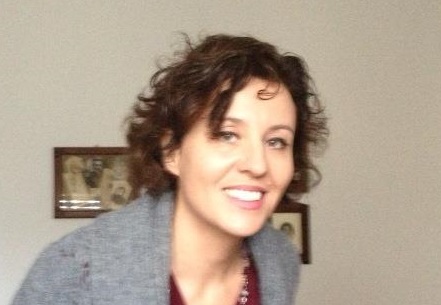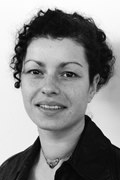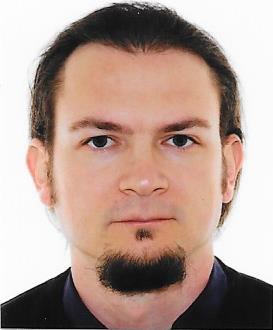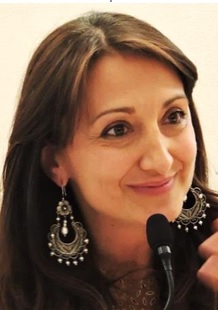Studying at the University of Verona
Here you can find information on the organisational aspects of the Programme, lecture timetables, learning activities and useful contact details for your time at the University, from enrolment to graduation.
Academic calendar
The academic calendar shows the deadlines and scheduled events that are relevant to students, teaching and technical-administrative staff of the University. Public holidays and University closures are also indicated. The academic year normally begins on 1 October each year and ends on 30 September of the following year.
Course calendar
The Academic Calendar sets out the degree programme lecture and exam timetables, as well as the relevant university closure dates..
| Period | From | To |
|---|---|---|
| Sem. 1A | Sep 25, 2023 | Nov 4, 2023 |
| Sem. 1B | Nov 13, 2023 | Dec 22, 2023 |
| Sem. 2A | Feb 19, 2024 | Mar 29, 2024 |
| Sem. 2B | Apr 9, 2024 | May 31, 2024 |
| Session | From | To |
|---|---|---|
| Sessione d'esame invernale | Jan 8, 2024 | Feb 17, 2024 |
| Sessione d'esame estiva | Jun 3, 2024 | Jul 27, 2024 |
| Sessione d'esame autunnale | Aug 26, 2024 | Sep 21, 2024 |
| Session | From | To |
|---|---|---|
| Sessione estiva | Jul 8, 2024 | Jul 13, 2024 |
| Sessione autunnale | Nov 4, 2024 | Nov 9, 2024 |
| Period | From | To |
|---|---|---|
| Festa di Ognissanti | Nov 1, 2023 | Nov 1, 2023 |
| Festa dell'Immacolata | Dec 8, 2023 | Dec 8, 2023 |
| Vacanze di Natale | Dec 23, 2023 | Jan 6, 2024 |
| Vacanze di Pasqua | Mar 30, 2024 | Apr 1, 2024 |
| Festa della Liberazione | Apr 25, 2024 | Apr 25, 2024 |
| Festa del Lavoro | May 1, 2024 | May 1, 2024 |
| Festa del Patrono S. Zeno | May 21, 2024 | May 21, 2024 |
| Festa della Repubblica | Jun 2, 2024 | Jun 2, 2024 |
| Vacanze estive | Aug 12, 2024 | Aug 17, 2024 |
Exam calendar
Exam dates and rounds are managed by the relevant Humanistic Studies Teaching and Student Services Unit.
To view all the exam sessions available, please use the Exam dashboard on ESSE3.
If you forgot your login details or have problems logging in, please contact the relevant IT HelpDesk, or check the login details recovery web page.
Should you have any doubts or questions, please check the Enrollment FAQs
Academic staff
 carlo.callegaro@univr.it
carlo.callegaro@univr.it
 laura.fontecedro@univr.it
laura.fontecedro@univr.it
 giacomo.mormino@univr.it
giacomo.mormino@univr.it
 piergiorgio.reggio@univr.it
piergiorgio.reggio@univr.it
Study Plan
The Study Plan includes all modules, teaching and learning activities that each student will need to undertake during their time at the University.
Please select your Study Plan based on your enrollment year.
1° Year
| Modules | Credits | TAF | SSD |
|---|
2° Year It will be activated in the A.Y. 2024/2025
| Modules | Credits | TAF | SSD |
|---|
| Modules | Credits | TAF | SSD |
|---|
| Modules | Credits | TAF | SSD |
|---|
| Modules | Credits | TAF | SSD |
|---|
Legend | Type of training activity (TTA)
TAF (Type of Educational Activity) All courses and activities are classified into different types of educational activities, indicated by a letter.
Theories and techniques of psychological intervention in business (2023/2024)
Teaching code
4S011771
Credits
9
Language
Italian
Scientific Disciplinary Sector (SSD)
M-PSI/06 - WORK AND ORGANIZATIONAL PSYCHOLOGY
Courses Single
Authorized
The teaching is organized as follows:
Lezione
Esercitazione
Learning objectives
GENERAL OBJECTIVES: - Acquire an overview of the main psychological theories of reference and the related constructs connected with the subject of training activities for adults. - Use the main psychological theories of reference and related constructs related to the subject of adult education activities. SPECIFIC OBJECTIVES: The course aims to immerse the students in the methods and techniques that can be used in the adult education classroom. By means of a series of tasks drawn from the reference literature, the students are involved in discussions and group work that make them take on the role of active trainees. Furthermore, in turn, each of them will take on the role of trainer/conductor of training activities. The course has the following specific training objectives: - know the theories and models relating to lifelong learning; - know and be able to apply the methods and techniques for detecting training needs and desires; - know the specificity of continuing training methods and techniques; - know how to apply some specific methods and techniques for continuing training; - know and be able to grasp the main classroom management models in adult education; - know and be able to apply methods and techniques for evaluating training outcomes.
Prerequisites and basic notions
Since this is a course in the first year of a master's degree, taught within the SSD M-PSI/06 (Work and Organizational Psychology), it is a prerequisite to have followed and taken exams of the same SSD.
Program
The course intends to show students how the concept and practice of psychological intervention can also be imported into the world of business, companies and organizations in general. From this point of view, the course will deal with the following topics: - Training, continuous training and development: relationships, similarities and differences; - Continuing training and career guidance: adult learning; - Placement and job placement: which characteristics increase the employability of the unemployed and the unemployed; - Theories of career guidance and training: from traits to context to the interaction between the two; - Training and organizational cultures: which intervention for which organization; - Psycho-social training and transactional analysis: the group and the relationships between individuals as a method and goal of continuous training.
Bibliography
Didactic methods
Lectures with discussion of cases and readings
Learning assessment procedures
The exam is written and focuses on the in-depth and assimilated study of texts. The writing will include a variable number of open and closed questions so that the student can demonstrate his preparation and the teacher can have a large and sufficiently representative sample of the knowledge developed during the course and individual study. I don't use a rigid and structured written exam format, in the sense that sometimes there are closed questions, sometimes not. On the other hand, there are always open questions, generally 3 in number. I generally assign 10 points to each open question so that the sum makes 30. Praise depends on the way in which the student offers his answers, on the degree of detail of the same and the way in which the student demonstrates that he knows how to argue and support any of his personal points of view. During the teaching I show some examples of written exams in the classroom so that the students can view them, photograph them and disseminate them as they see fit.
Evaluation criteria
The first evaluation criterion concerns the demonstrated learning by students of the notions and contents of the subject, those present in the study material. If male and female students limit themselves to demonstrating this, their vote will fluctuate between 18 and 21. The second evaluation criterion concerns the demonstrated ability of male and female students to link notions and contents to each other and to produce an articulated and reasoned discourse than what is asked of them. If male and female students demonstrate this, their mark will fluctuate between 22 and 26. The third and final evaluation criterion concerns the demonstrated ability of male and female students to apply in an intelligent and creative way (which does not mean imaginative or utopian) what learned in real cases of training and professional development in order to achieve real and concrete objectives of learning, change, well-being, etc. If male and female students demonstrate this, their vote will fluctuate between 27 and 30. Honors are reserved for those who produce a perfect written assignment in every part that communicates learning, connections, critical thinking and the ability to apply all this to real cases. I conclude by saying that the grammatical and stylistic correctness with which students offer their answers to the questions also contributes to the final grade.
Criteria for the composition of the final grade
See above
Exam language
Italiano
Type D and Type F activities
SOFT SKILLS
Find out more about the Soft Skills courses for Univr students provided by the University's Teaching and Learning Centre: https://talc.univr.it/it/competenze-trasversali
CONTAMINATION LAB
The Contamination Lab Verona (CLab Verona) is an experiential course with modules on innovation and enterprise culture that offers the opportunity to work in teams with students from all areas to solve challenges set by companies and organisations.
Upon completion of a CLab, students will be entitled to receive 6 CFU (D- or F-type credits).
Find out more: https://www.univr.it/clabverona
PLEASE NOTE: In order to be admitted to any teaching activities, including those of your choice, you must be enrolled in the academic year in which the activities in question are offered. Students who are about to graduate in the December and April sessions are therefore advised NOT to undertake extracurricular activities in the new academic year in which they are not enrolled, as these graduation sessions are valid for students enrolled in the previous academic year. Therefore, students who undertake an activity in an academic year in which they are not enrolled will not be granted CFU credits.
| years | Modules | TAF | Teacher |
|---|---|---|---|
| 1° 2° | Art, memory and terrorism: the duty to protect our cultural heritage | D |
Olivia Guaraldo
(Coordinator)
|
| 1° 2° | Ciclo tematico di conferenze – sulla "leadership femminile": dati, riflessioni ed esperienze | D |
Paola Dal Toso
(Coordinator)
|
| 1° 2° | Creativity and insight: two sides of the same coin? | D |
Roberto Burro
(Coordinator)
|
| 1° 2° | Ethics in psychology | D |
Elena Trifiletti
(Coordinator)
|
| 1° 2° | Project Life Cycle | D |
Andrea Ceschi
(Coordinator)
|
| 1° 2° | Neuropsychology Laboratory | D |
Valentina Moro
(Coordinator)
|
| 1° 2° | Invisible plots in contemporary reality | D |
Rosanna Cima
(Coordinator)
|
| 1° 2° | University and DSA - Methods and strategies for tackling study and university studies | D |
Gianluca Solla
(Coordinator)
|
| years | Modules | TAF | Teacher |
|---|---|---|---|
| 1° 2° | Cities and Freedom | D |
Giacomo Mormino
(Coordinator)
|
| 1° 2° | Education and affectivity - 200 years after Christian education by Antonio Rosmini | D |
Fernando Bellelli
(Coordinator)
|
| 1° 2° | APsyM workshop on quantitative data analysis | D |
Margherita Brondino
(Coordinator)
|
| years | Modules | TAF | Teacher |
|---|---|---|---|
| 1° 2° | Cities and Freedom | D |
Giacomo Mormino
(Coordinator)
|
| 1° 2° | Legal clinics | D |
Alessia Maria Aurora Bevilacqua
(Coordinator)
|
| 1° 2° | APsyM workshop on quantitative data analysis | D |
Margherita Brondino
(Coordinator)
|
| 1° 2° | Laboratorio di etica e deontologia nella professione di psicologo | D |
Elena Trifiletti
(Coordinator)
|
| 1° 2° | Laboratorio di tecniche psicologiche per la gestione delle risorse umane | D |
Andrea Ceschi
(Coordinator)
|
| 1° 2° | Tai-Ti aiuto io | D |
Alessandra Cordiano
(Coordinator)
|
| 1° 2° | Verso le elezioni europee 2024 | D |
Massimo Prearo
(Coordinator)
|
Career prospects
Module/Programme news
News for students
There you will find information, resources and services useful during your time at the University (Student’s exam record, your study plan on ESSE3, Distance Learning courses, university email account, office forms, administrative procedures, etc.). You can log into MyUnivr with your GIA login details: only in this way will you be able to receive notification of all the notices from your teachers and your secretariat via email and soon also via the Univr app.
Graduation
Documents
| Title | Info File |
|---|---|
|
|
pdf, it, 99 KB, 13/10/23 |
|
|
pdf, it, 101 KB, 10/04/24 |
List of theses and work experience proposals
Student mentoring
Gestione carriere
Linguistic training CLA
Practical information for students
Documents
| Title | Info File |
|---|---|
|
|
pdf, it, 325 KB, 02/05/23 |
|
|
pdf, it, 212 KB, 02/05/23 |
|
|
pdf, it, 131 KB, 02/05/23 |
Stage e Tirocini
Lo/a studente/essa tirocinante curricolare sarà chiamato/a svolgere, presso gli Enti che lo ospitano, attività che prevedono competenze associate alla figura professionale dello Psicologo, in particolare lo Psicologo per la formazione, e nello specifico:
- attività di progettazione, realizzazione e valutazione dell’efficacia di interventi di percorsi formativi, nonché attività volte alla facilitazione dell'apprendimento nel ciclo di vita, in particolare in contesti organizzativi;
- attività che prevedano l’analisi delle relazioni interpersonali, dei contesti organizzativi e delle pratiche lavorative;
- attività che prevedano la gestione di processi organizzativi complessi, per lo sviluppo e la valorizzazione delle persone all'interno delle organizzazioni;
- attività di progettazione, realizzazione e valutazione di interventi psicologici volti all’orientamento scolastico e professionale;
- attività che prevedono l’uso di tecniche e strumenti di analisi delle situazioni e dei contesti, di raccolta di informazioni, e di interpretazione dei risultati, principalmente in relazione ai contesti organizzativi.
Tali attività si svolgono in Aziende ed Enti accreditati presso l’Ateneo. Lo/la studente/essa sarà seguito da un tutor accademico e da un tutor aziendale. Alle attività di tirocinio sono attribuiti n. 9 CFU (pari a 225 ore).
Linee Guida per lo Svolgimento dei Tirocini Curriculari
- Tutte le informazioni in merito agli stage per futuri studenti sono disponibili alla pagina Stage e tirocini.
- Tutte le informazioni in merito agli stage per studenti iscritti sono pubblicate in MyUnivr - come fare per - stage e tirocini.
- Tutte le informazioni in merito agli stage per le aziende sono disponili alla pagina Stage e tirocini per azienze.
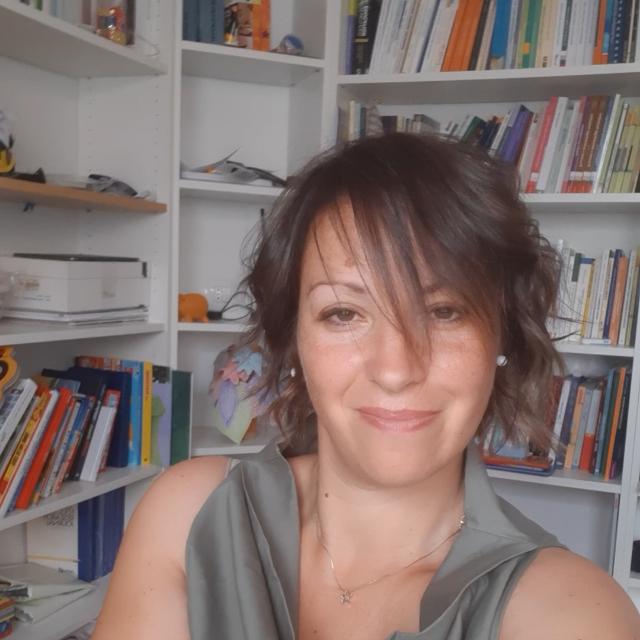
 045 8028383
045 8028383








